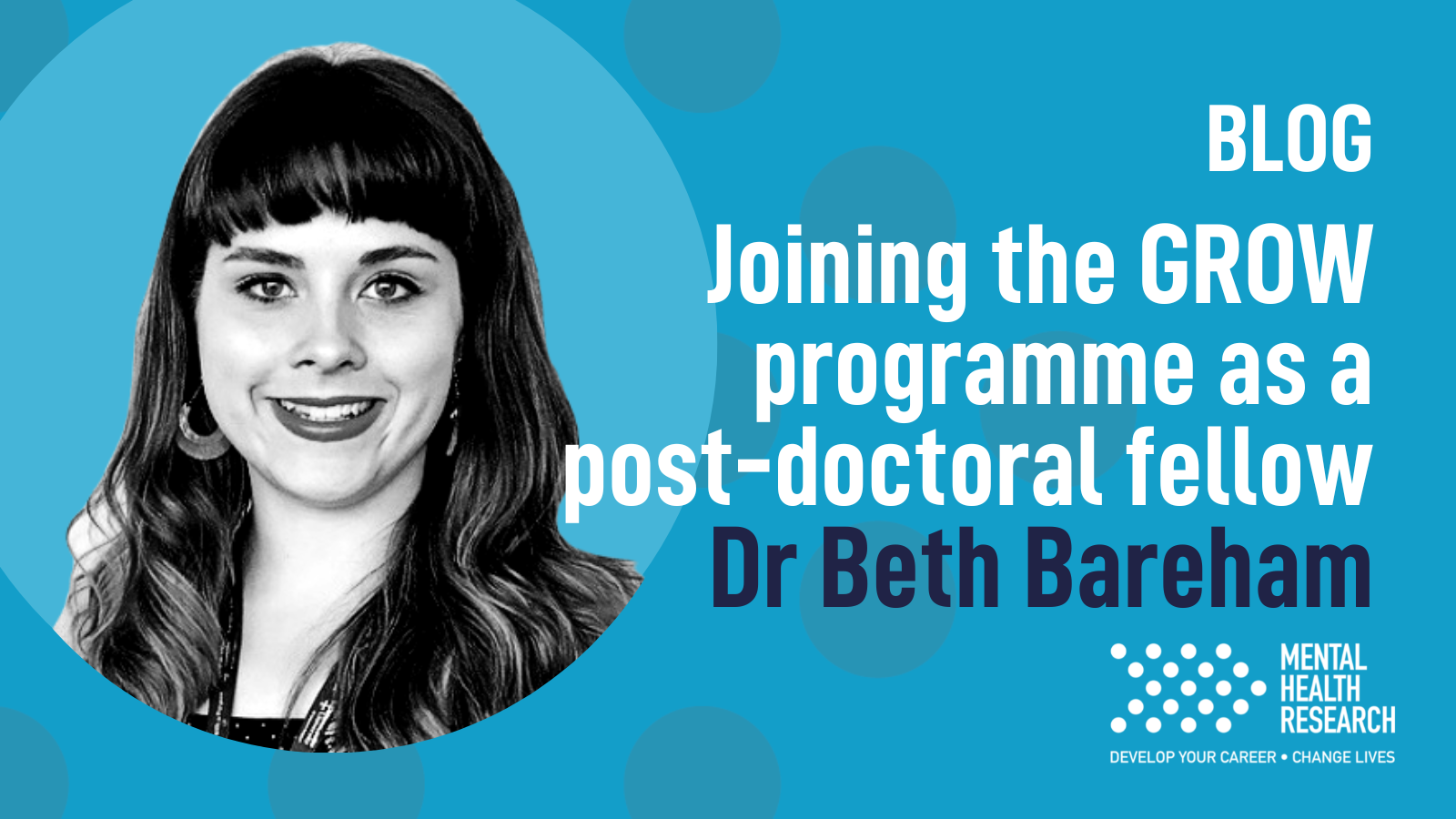
This article was originally published 3 February 2023 on the NIHR School for Primary Care Research blog.
Joining the GROW Programme
In the early days of my NIHR Three Research Schools’ Mental Health Programme post-doctoral fellowship, I was excited to be awarded a competitive place in the first cohort of the NIHR Mental Health Research Incubator's GROW Researcher Development Programme. I was keen to join the programme as I took a greater focus on mental health research through my fellowship, and wanted to get to know other emerging leaders in this field. I was also excited by the training programme involved in this course, which was tailored to equip me with the skills and expertise needed to be successful as an early career mental health researcher.
A particular highlight was getting to meet the man behind ‘Mental Elf’, and learn about his approach to public engagement. This has really supported me to successfully recruit from my target population in my fellowship study
The GROW Programme brings together early career researchers working in mental health research and provides training and networking opportunities to support us in our work to promote the mental health of the nation through research. The programme involved half-day online sessions where we engaged in training for key activities in our work, including grant applications, collaboration, impact and public engagement, and provided us with a space to think together about how we can utilise these skills in our own research. A particular highlight was getting to meet the man behind ‘Mental Elf’, and learn about his approach to public engagement. This has really supported me to successfully recruit from my target population, people aged 55+ with co-occurring alcohol and mental health problems, in my fellowship study.
Supporting the needs of ECRs with training and networking
The programme leads were keen to understand what training and support could help us most as ECRs working in the field of mental health, and fulfil these needs through the programme. As part of our training, cohort members shared their own research practice to help us understand how people similar to us are approaching their research activities, which gave us an idea about what can be realistic to achieve at our present career stage and how we might go about it.
I developed a number of collaborations with other members of the programme, and we have been able to help each other by sharing funding opportunities and successful grant applications.
There was plenty of time for networking as a cohort, and I developed a number of collaborations with other members of the programme. This was especially fuelled by our residential in London, where we were able to meet face-to-face. These new relationships have been very supportive, and we have been able to help each other by sharing funding opportunities and successful grant applications with one another, resulting in a number of successful bids.
Receiving one-to-one academic career coaching was another privilege of being part of this programme; where we were able to address aspects of our development as researchers over four individual sessions. My coach worked with me to develop a regular writing regime, reflect on and develop my role as a line manager, as well as consider how I can be successful and healthy in my academic work.
Staying connected with other researchers
The GROW cohort did not end with the last session, and ongoing work and contact were encouraged and supported by the programme leads. Currently, programme members are working on a number of activities now the programme has concluded. These include establishing a research project to explore the mental health of mental health researchers, and the support needs of researchers like us; as well as plans to get together for writing retreats in the near future.
Applications for the 2023 GROW Researcher Development Programme are now open.
Dr Beth Bareham is an early career researcher in health psychology, primary care, and public health at Newcastle University. She is the recipient of an NIHR Mental Health Fellowship and is currently researching alcohol use and wellbeing among older adults in the North East and North Cumbria.
